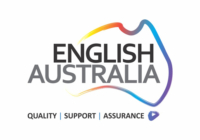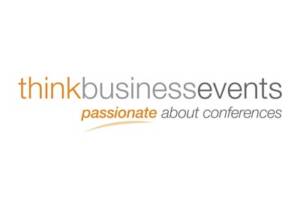Impact, Include, Inspire
Workshops
There will be two pre-conference workshops held at 10.00am-1.00pm on Wednesday 11 September, directly before the main Conference program begins at 2.00pm that day.
People wishing to attend the pre-conference workshops should register separately for the workshop via the Conference registration form.
Workshops are $130 for English Australia members and $220 for non-members.
Workshop 1 – An introduction to item analysis for language test development
Facilitated by Stephen Walker, Academic Manager, English Language Assessment, UQ College, The University of Queensland
Wednesday 11 September at 10am-1pm
For many teachers who are required to develop language tests, the time available is largely taken up with writing the test items themselves. Skilful and experienced item writers can learn over time to consistently produce a good proportion of effective items, and to identify potential problems with items during the test development process.
However, some information about the way a test item performs is hidden and can only be discovered through statistical analysis. We can for example see how easy or difficult the test takers find an item or whether the stronger students get it right and the weaker ones get it wrong. Analysis can also reveal whether there is a ‘wrong’ answer which a lot of people choose, or alternatively, a wrong answer (a distracter) in a task which no-one chooses or which some stronger students choose. These aspects of test item performance help us to determine how well a test can provide an accurate measurement of test takers’ abilities. In any testing situation, we want our assessments to be as valid, reliable, and fair as possible, but in high stakes test situations such as university admission, this is crucial.
This 3-hour workshop aims to provide participants with an introduction to basic techniques for language test item analysis using the software Winsteps. Participants will have the opportunity to use the software to analyse test data provided in the workshop. Participants may also be able to bring their own data sets to the workshop. No prior knowledge and no understanding of statistics or mathematics is required.=
The session aims to answer the following questions:
- What can item analysis tell me about my test and my test items?
- What information do I need to have about my students’ performance so that I can analyse it?
- How do I interpret the results of the analysis and understand what they mean to me in my testing context?
Participants will be provided with a fully functional version of the software to install on their laptops before attending the workshop. Participants wishing to use their own data sets in the workshop will be given instructions of how to format their data in advance of the session.
Sponsored by

Workshop 2 – Empowerment through the development of teacher cognitions
Facilitated by Ben Beaumont, Head of English Language Teacher Strategy and Publishing, Trinity College London
Wednesday 11 September at 10am-1pm
Conceptualisations of teacher learning are generally based on the belief that educators’ professional learning is a lifelong process, affected as much by formal teacher education programmes as teachers’ experiences as learners in schools and, then later, as teachers. Yet so often, teacher learning is classified into a pre-service/in-service binary, suggesting a standardised, top-down approach to teachers’ professional development meant to fit a range of emerging needs.
In this workshop, we will be taking a more constructivist view of teacher learning that recognises the importance of the teacher, their beliefs and their accumulated experiences, i.e. teacher cognitions, on their pedagogic choices and their unique learning pathways. By using teacher case studies, our own varied experiences and findings from recent research, we will explore how such elements are integral to the bi-directional influence between teachers and their environments and the possibilities of shaping these varied and multi-faceted influences.
With opportunities in the session to interact with peers and view our pedagogic actions from the perspective of professional context, this workshop aims to bring fresh insight into our development activities. This contextualised insight can then be used to gain a better understanding of how to build teacher cognitions, leading to increased teacher agency and our professional empowerment.
Sponsored by




